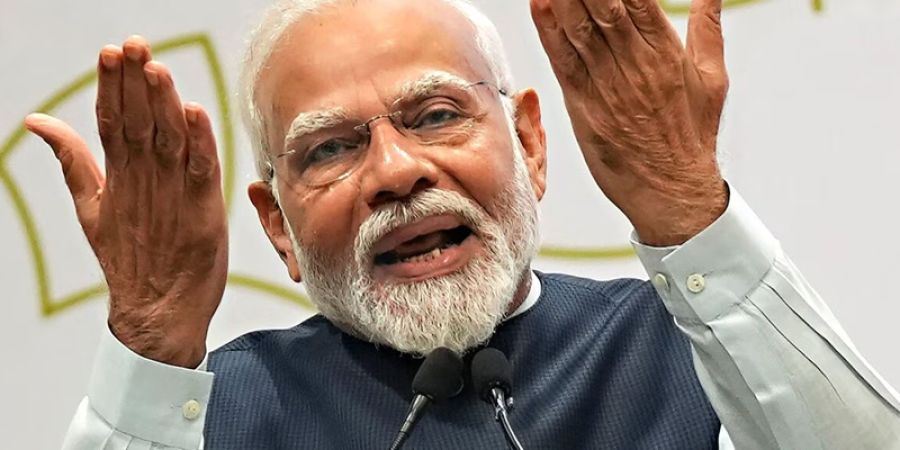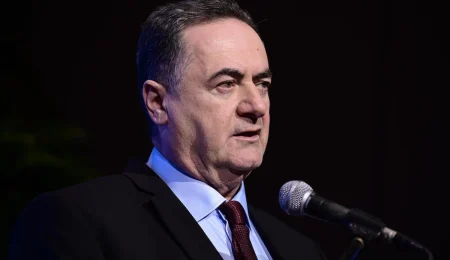Indian Prime Minister Narendra Modi has called on top US tech companies to consider India as a prime destination for manufacturing and innovation.
Modi’s appeal came during a high-profile meeting in New York with 15 prominent CEOs from leading tech firms, including Google’s Sundar Pichai, Adobe’s Shantanu Narayen, IBM’s Arvind Krishna, and NVIDIA’s Jensen Huang.
This meeting followed Modi’s attendance at the Quad Summit, where leaders from the US, Australia, Japan, and India discussed various global issues.
During the meeting, Modi emphasised India’s potential, urging tech giants to collaborate with the country.
“They can co-develop, co-design, and co-produce in India for the world,” he said.
The Indian government has been actively positioning the country as an alternative to China for companies looking to diversify their supply chains, particularly in the field of semiconductor manufacturing.
While India has focused on expanding its semiconductor industry in recent years, it still trails behind major global suppliers like China and Taiwan. However, with the growing importance of technology in global supply chains, India is hopeful that collaborations with US tech firms can help strengthen its position.
India’s foreign ministry highlighted the discussions with the CEOs, noting that the meeting explored the use of technology for innovations that have the potential to “revolutionise the global economy and human development.”
In addition to the meeting with tech leaders, Modi addressed a crowd of 15,000 Indian-Americans in New York, describing them as “brand ambassadors” of India. He positioned India as key to global issues, saying, “India is central to global development, global peace, global climate action, global innovations, global supply chains.”
Modi’s visit to the US also saw the signing of significant agreements between India and the US, including a landmark semiconductor pact. The agreement aims to establish a semiconductor fabrication plant in India that will produce chips for critical applications such as national security, next-generation telecommunications, and green energy.
This deal is seen as part of broader US efforts to reduce reliance on China’s semiconductor industry, with the Indian plant expected to supply chips to both US and allied militaries.
While the partnership with the US marks a significant step for India’s semiconductor ambitions, previous attempts to establish a homegrown semiconductor industry have faced challenges. However, with renewed global focus on supply chain diversification, this deal offers a boost to India’s aspirations.
The semiconductor plant will reportedly focus on “three essential pillars for modern war fighting: advanced sensing, advanced communications, and high-voltage power electronics,” according to The Indian Express.
Despite the productive discussions, tensions over Sikh separatist leaders in the US and Canada remain unresolved. Some Sikh leaders claim they have faced threats backed by India, allegations the Indian government denies. Neither Modi nor US President Joe Biden addressed these tensions during their discussions.
Modi’s visit also came amidst the backdrop of the upcoming US presidential election, with former President Donald Trump praising Modi as “a fantastic man” in recent remarks. However, no meeting between Trump and Modi occurred during the visit.
The Quad leaders, including Modi, also issued a joint statement focused on maritime security in the Indo-Pacific region. Without directly naming China, the statement condemned “destabilizing or unilateral actions” in the region. Analysts noted the stronger language in the communique, reflecting growing concerns over Chinese activities in the South China Sea.
“The language on provocations in the South China Sea, while not directly referring to China, is stronger than ever before. That’s because all four Quad states are increasingly concerned about the escalation in Chinese activities there,” said Michael Kugelman, director of the South Asia Institute at the Wilson Centre think-tank.
The Quad leaders also announced initiatives to enhance maritime surveillance, create a logistics network for natural disasters, and combat cervical cancer, further solidifying their collective vision for security and development in the Indo-Pacific region.
Chioma Kalu
Follow us on:

